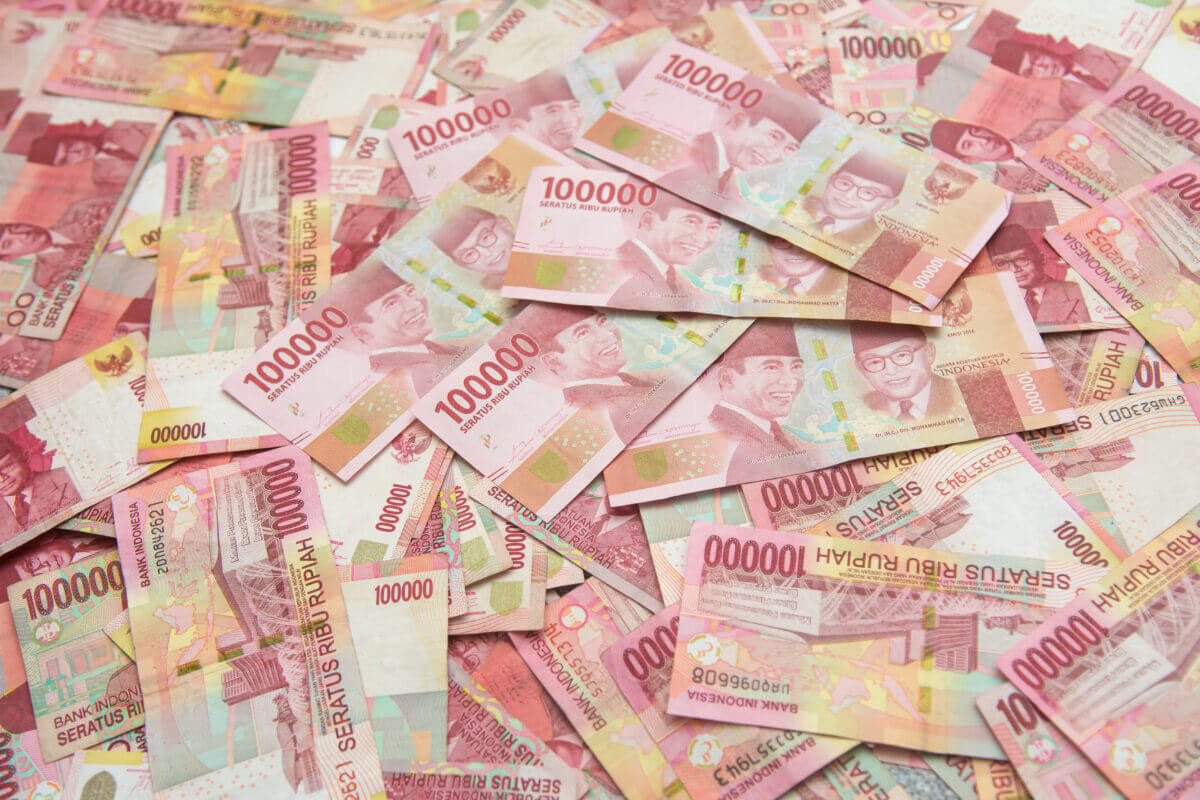
Rupiah Falls Ahead of Debt Monetization
Indonesia’s rupiah sank by its most in two months in forex trading, ahead of a parliamentary hearing. That was on the nation’s debt monetization plan, and this prompted intervention by the central bank.
The currency fell as much as 1.5%, its biggest decline since May 4. After the intervention, the rupiah was 1.3% lower at 14,570 per dollar at 2:05 p.m. in Jakarta.
Yanxi Tan, a forex strategist at Malayan Banking Bhd. said investors are a bit spooked by debt monetization concerns. This is increasingly so since the figure is quite big and will be a pain to unwind later.
In a hearing on Monday, the Parliament’s financial commission will scrutinize Bank Indonesia’s agreement. The agreements were to fund $40 billion of the government’s fiscal response to fight coronavirus.
Both sides were careful to make a plan that is very prudent and maintain monetary independence, fiscal integrity, and stability. This was a statement on Friday, from Febrio Kacaribu, head of the finance ministry’s fiscal office.
Some forex investors are still concerned that it has sparked the risk of a downgrade for Indonesia’s sovereign rating.
Chang Wei Liang is a macro strategist at DBS Bank Ltd. in Singapore. Liang said markets are concerned that there will be a marked increase in liquidity. That is, as Bank Indonesia increases holdings of government bonds to support fiscal authorities.
Indonesia’s 10-year government bond yield was steady at 7.23% on Friday.
Meanwhile, a spike of coronavirus cases weighed on the rupiah after the country reported 1,624 infections on Thursday. This was the biggest single-day jump so far.
The Rupiah against the Dollar
The rupiah IDR lost more than 2.6% against the dollar this week. This was its biggest weekly fall since the near 8% plunge it recorded in mid-March. That was during a severe dollar funding shortage in Asian markets.
Forex exchange investors turned cautious after Bank Indonesia (BI)on Monday agreed to ‘share the burden’ with the government. It agreed to buy bonds with even zero yields. That was to help finance a fiscal deficit bloated by spending, to tackle the coronavirus outbreak.
When an emerging economy is purchasing a bond with its own currency instead of the dollar, it creates inflation. Margaret Yang, strategist at DailyFX said, the central bank is creating this money from nowhere.
During the week, the pressure on the rupiah was due to domestic factors. This includes fear of a second wave of COVID-19 infections, said BI Deputy Governor Dody Budi Waluyo.




